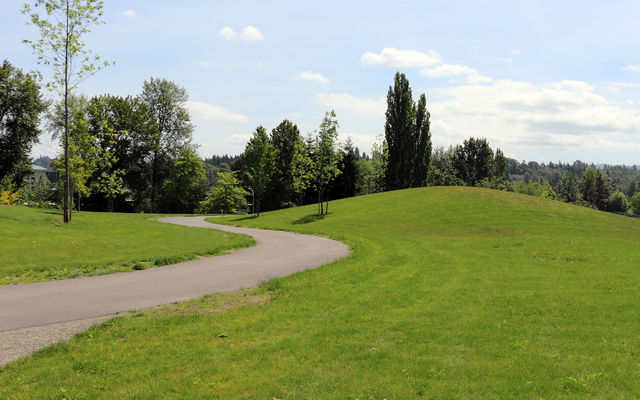
Plus, council advances safe parking program pilot and adopts Transportation Facilities Plan through 2033
On Monday, the City Council approved the Parks and Open Space System Plan and continued their discussion about the possibility of placing a ballot measure for a parks levy on November’s General Election ballot. The measure would be a way to fund the city’s future parks investments to address community needs and park system gaps identified in the Parks and Open Space System Plan and informed by public input.
The proposed $85 million levy, structured as a nine-year regular levy lid lift funding mechanism, would equal an annual taxpayer cost of $0.15 per $1,000 of assessed value plus $0.05 per $1,000 of assessed value for maintenance and operating costs. The resulting cost of the levy for a $1 million home would be about $16 a month, or $200 annually.
The council voted unanimously to continue moving ahead in preparation for placing the measure on this year’s general election ballot and for the existing 2008 parks levy to remain in place until it expires in 2028. Councilmembers requested that language be built into the proposed ordinance that would allow maximum flexibility for allocating the funds across several categories of open space, parks and recreation projects as prioritized by public and Parks Board input.
In addition, the city is asking interested members of the public to join a committee that will develop pro and con statements for the ballot measure in the event the council formally adopts an ordinance at next week’s meeting to pursue the measure.
The full discussion is available on a replay of the meeting through Bellevue Television.
Council advances safe parking program
In other business, the council voted to move forward with creating an implementation plan, including costs, budget analysis and legal review, for a year-long safe parking pilot program in line with a specific city council priority to explore such a program.
Over half of those who are unsheltered in King County are living in vehicles. This included approximately 300 people in East King County during the Point in Time Count in 2020. An unofficial count in Bellevue in December 2021 listed 83 vehicles in which people and families were likely living.
A safe parking program in Bellevue, while not a solution to homelessness, would provide an alternative to parking in the street, assist these residents in finding stable housing and accessing services, allow them to access clean water, sanitation and electricity, and provide increased safety to them while residing in their vehicles. It also supports the city’s commitment to making homelessness a rare, brief, one-time event whenever possible.
The council was presented with a recommendation for a centralized operational model for the program where the city would contract with a single service provider for management of any or all safe parking sites and explore siting the pilot program on city-owned property.
The council unanimously approved further research for viability of the program and continued community outreach. More details are in the meeting materials.
Transportation Facilities Plan adopted
The council also voted unanimously to adopt the 2022-2033 Transportation Facilities Plan (TFP) following a recommendation from the Transportation Commission.
The TFP serves as the city’s 12-year transportation capital facility planning document. It includes high-priority projects from long-range plans (such as the Downtown Transportation Plan Update, the Transit Master Plan, and the Pedestrian-Bicycle Implementation Plan) and projects that address emerging needs and opportunities. The TFP provides the first level of citywide prioritization of transportation facility projects recommended by long-range transportation studies. The plan also serves as the basis for the city’s Impact Fee Program, which asks new developments to share the necessary costs to increase transportation system capacity as the city grows. The TFP is typically updated every two to three years, with the last TFP adopted in 2019.
The 2022-2033 TFP includes 71 projects that will improve safety, address vehicular capacity needs, enhance transit mobility and continue building out key segments of Bellevue’s pedestrian and bicycle systems. Each project includes a recommended funding allocation; sixteen of the projects are already fully funded in the 2021-2027 CIP (including Transportation Levy program funds).
More information on the plan can be found on the Transportation Facilities Plan webpage and in the meeting materials.
Source: City News

Recent Comments